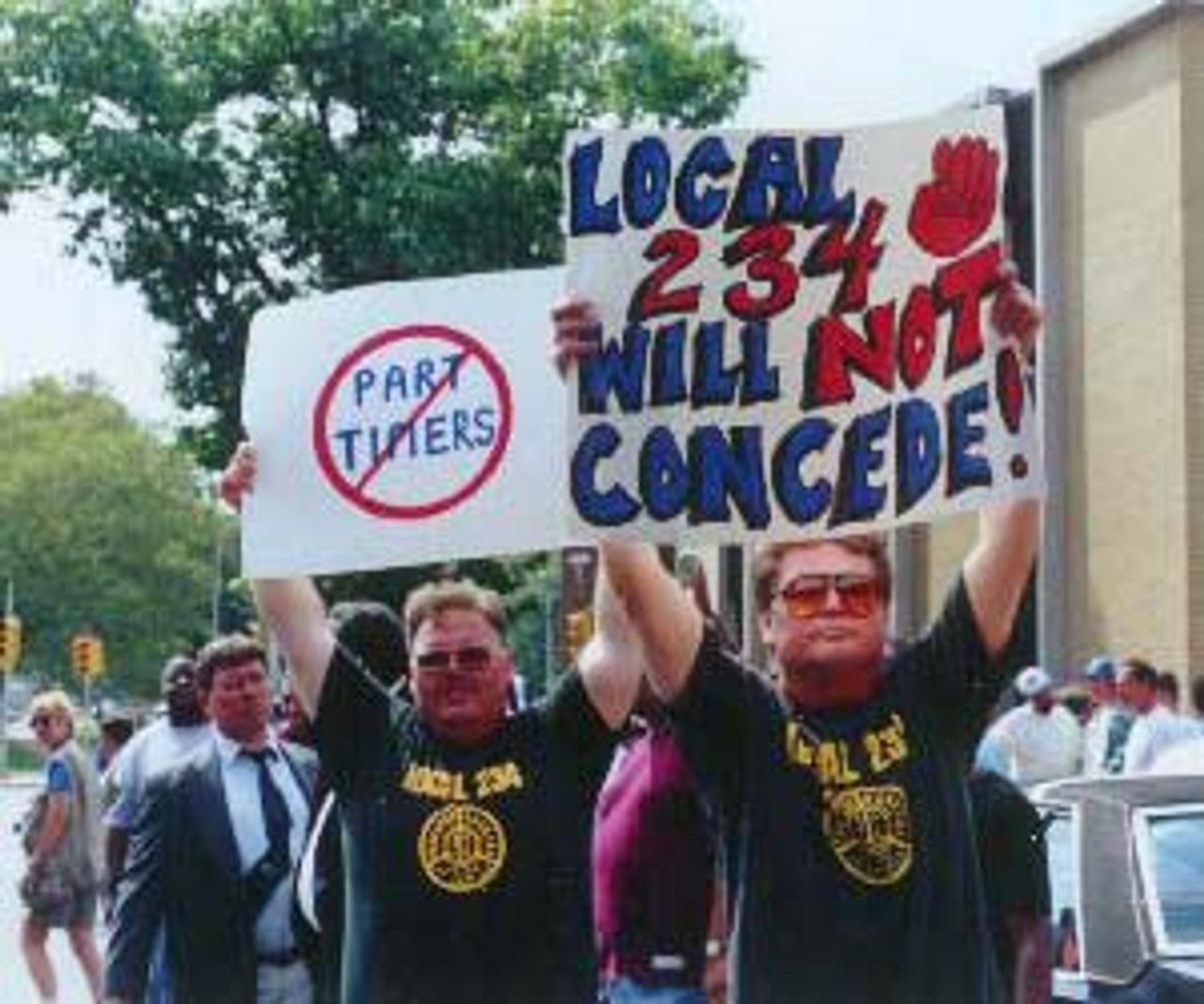 For the second time in as many day, talks between Transport Workers Union Local 234 and the Southeastern Pennsylvania Transportation Authority (SEPTA) have broken off with no new talks scheduled. The strike by over 5,500 transit workers is now in its fifth week.
For the second time in as many day, talks between Transport Workers Union Local 234 and the Southeastern Pennsylvania Transportation Authority (SEPTA) have broken off with no new talks scheduled. The strike by over 5,500 transit workers is now in its fifth week.
The talks had resumed at noon Tuesday after having broken off Monday. At a stormy three hour negotiating session SEPTA officials, Democratic Party politicians and other city union officials pressed for representatives of Transport Workers Union Local 234 to bring back a contract to their members that would accept management's demands on the employment of part-timers, concessions on workers compensation, a 'managers' rights' clause, and changes in the disciplinary procedure.
Tom Kelly, head of the Sheet Metal Workers union, and Joseph Rauscher, head of the Philadelphia AFL-CIO, close supporters of Democratic Mayor Ed Rendell, pressed for a settlement in order to improve the city's chances of getting the Democratic Party to hold its convention there in 2000. Rendell has openly sided with SEPTA management. City Council President John Street has said if the strike continues, he might talk to Council members about seeking a back-to-work order.
After talks broke off, over 300 angry TWU members held a two mile march from the union headquarters through Center City rush hour traffic. The march ended at the Liberty Bell, where the Democratic National Committee site committee was to have been touring. The site committee had decided to leave town rather than confront large numbers of strikers.
TWU Local 234 officials have indicated their willingness to accept binding arbitration or court-supervised negotiations. Local president Steven Brookens has said he considers Mayor Rendell to be a 'bad Democrat,' but that the union will still support the Democratic Party.
The WSWS spoke with several strikers at the rally. A bus driver said, 'We will do whatever it takes to win this. If we have to stay out until September, so be it. Everything that SEPTA runs should be stopped: Paratransit, maintenance trains, and the regional rail lines. I've been with SEPTA six years. This is my second strike. I don't understand why we have to strike every time a contract comes up.'
A subway operator said, 'Three years ago we got a good contract. SEPTA is deceiving the public. They publicize what they are giving us, but they don't say what they are trying to take away. A loaf of bread does not cost what it did ten years ago. We are just trying to keep what we have.'
Lawrence Thompson, a cashier, said, 'It looks bad. The strike should have ended by now. They want part-timers who get paid $10 an hour with no benefits. After eighteen years, I get paid $17 an hour with benefits, but they want to eliminate even that. Within the next five years they want to replace cashiers with automation. At the beginning of the strike SEPTA wanted to run the subways because they said it is a vital artery for the city, yet they want to replace us with machines.'
See Also:
Management firm in concessions demands
Talks fail to end Philadelphia transit walkout
[2 July 1998]
